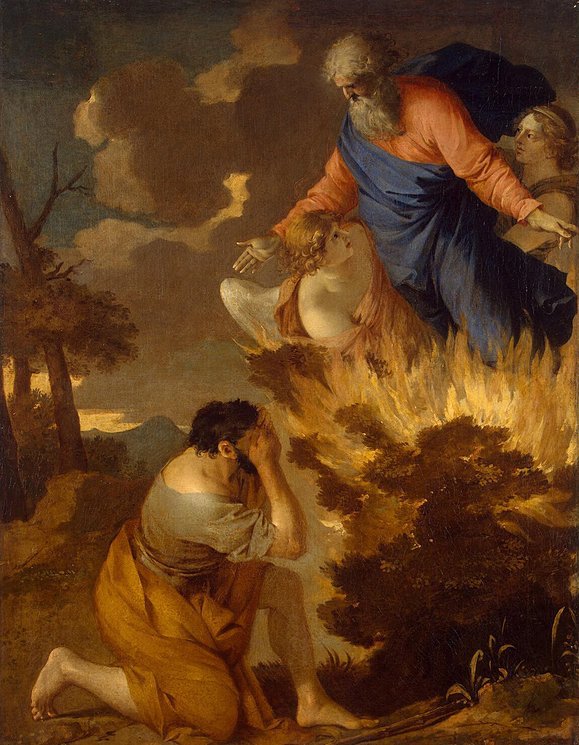“It is said that man deifies the heavens. Let it be granted. But where, exactly, did he find the idea of the divine that he applies to the heavens? Why do we discover the same spontaneous movement wherever we look at our kind? Why that impulse to deify?” (Henri de Lubac, The Discovery of God)
I am not aware of a single atheist argument that can answer any one of these questions. Are you? So why is it that, despite all the voices sounding the drumbeat of a world without God, there yet remains this intractable tendency to deify the heavens? Why is it that even the best and the brightest, with all their huffing and puffing on behalf of unbelief, cannot kill the desire for God? “Against the wild prayer of longing,” as the poet W.H. Auden reminds us, “legislation remains helpless.” How maddening and perverse it must all seem to the wise and the clever.
And yet, until we ask such questions, we’ve no business asking anything else. How can this be?
For the Christian, there can be only one answer: Imago Dei. It is because we are made in God’s very own image that we find ourselves driven to ask questions about Him. And, more to the point, because we are destined someday to assume the perfect likeness of the Son – who in becoming one of us, enables us thus to become one like him – nothing short of finding God will finally satisfy the human heart. Can there be a statute of limitations on immortal longings?

What sort of God must He be then if there is no end to our thinking about Him? If God is more than a mere name, a mysterious Other of whom we may predicate every possible perfection – from paternity and power, wisdom and justice, to love and mercy –then God is surely more than any sort of idea we may have of Him. Besides, as Gregory of Nyssa warns, “ideas create idols, only wonder leads to knowledge.”
What then is this wonder we call God but the fact, the single most dazzling datum of all, that He exists? That his very Name which, when spoken in that thunderous theophany from Exodus 3 to Moses, the wandering Israelite, cries out from the heart of the Burning Bush for all to hear: “I am who am.”
St. Thomas Aquinas argues that when we call God “He who is,” we speak more truly of his being than were we merely to call him God. And so, once again, on the strength of that image seared upon the soul, we find ourselves ineluctably drawn from the very start to go in search of God.
Neither dust nor sin, the two main disabilities we face, can wholly prevent our awareness of this Supreme Other, who, as countless saints have repeatedly told us, is more present to us than we are to ourselves.
“When you discover the door of your heart,” declares St. John Chrysostom in language endlessly reproduced down the centuries, “you discover the gate of heaven.” Only the frailty of our minds, the waywardness of our wills, may divert us from what de Lubac, in an expressive image, has called “the royal road of the mind,” along which the appointed journey home to heaven takes place.
Here is how the Lady Julian of Norwich put it in the 14th century, who, in transcribing the words of Christ, is really putting it as God himself would have us believe: “God is everything that is good, and God has made everything that is made, and God loves everything that he has made. . . .For in mankind, which will be saved, is comprehended all that is, all that is made and the maker of all; for God is in man, and so in man is all.”
That is really pushing the envelope. But Christ, who is not quite done in upending our expectations about him, goes on to add the following: “As I have made good the greatest damages, so I intend that you understand from this that I will make good all that is defective.”
What kind of a God could get away with saying things like that? What must the God of Jesus Christ be like to inspire such audacity of hope? “And all shall be well and all manner of thing shall be well,” to quote T.S. Eliot, who, having lifted the line from the Shewings of Lady Julian, pushes the envelope beyond all earthly limits.
Let me frame it this way. Why would God give life to beings whose grip on being is so tenuous that none of us could ever ourselves give being? We are, as perhaps Plato was the first to point out, children of poverty, which is to say, ontologically poor.
And if that weren’t humbling enough, there is this shattering fact to consider: Why would God having first brought us into being, then arrange to have himself brought into being? What have we got that God needs? Can any of us add to or subtract a cubit from the sheer greatness of God?
And then, of course, there is the most stupefying development of all, which is that God not only gives himself to the world of men, but allows those same men to lay hands on him and proceed slowly to torture him to death.
Who is this God that he should wish not merely to make men, but to submit to the injustice inflicted by them? And then – O most divine irony of all! – this same God takes that very instrument of his protracted and painful death, and makes it the means of our deliverance from death.
This is the God the atheists cannot believe in. But they must be mad.














